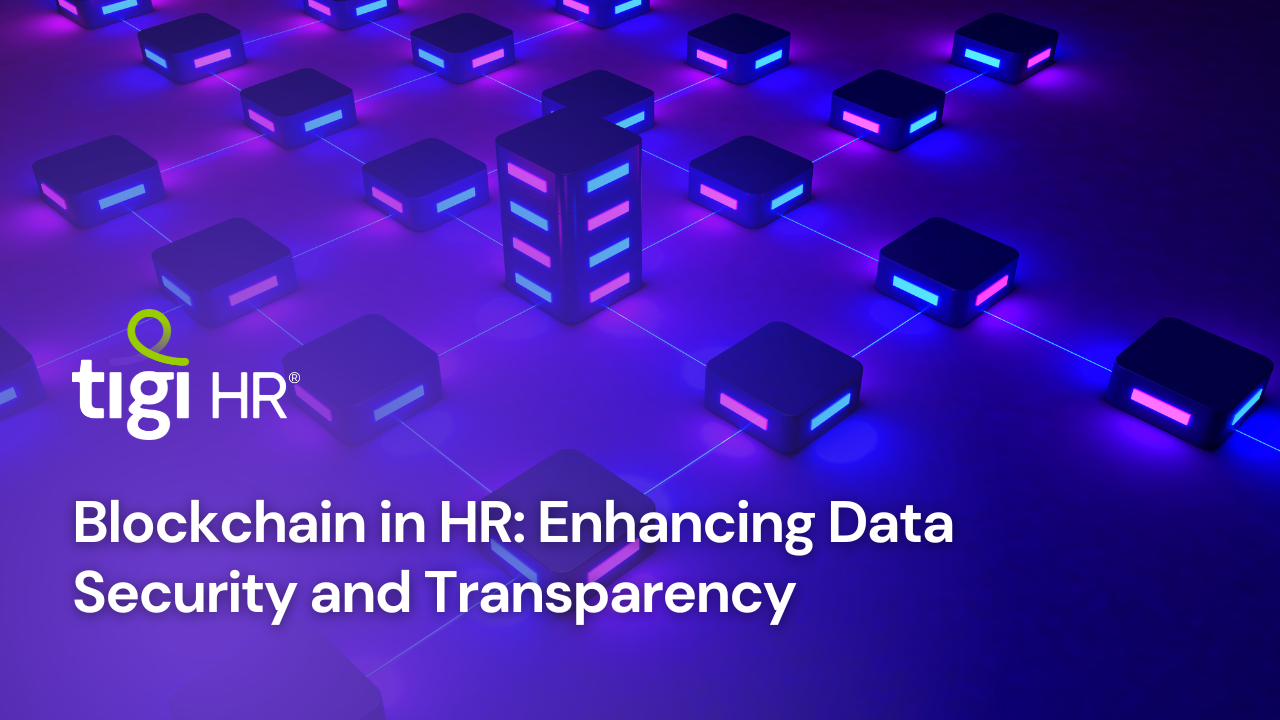As technology continues to revolutionize industries, blockchain has emerged as a game-changing innovation that transcends its cryptocurrency origins. Beyond its association with cryptocurrencies like Bitcoin, blockchain technology holds immense potential in transforming various sectors, including human resources. In the realm of HR, where sensitive employee data and transparent processes are paramount and offers a powerful solution. This article explores the intersection of blockchain in HR, showcasing how this technology enhances data security, transparency, and overall efficiency in modern workforce management.
The Promise of Blockchain Technology
Blockchain, often referred to as a decentralized digital ledger, is built upon the principles of security, transparency, and immutability. This technology ensures that data is securely stored in a tamper-resistant manner, providing a reliable record of transactions or information exchanges. Each piece of information, or “block,” is linked to the previous one, forming an unbreakable “chain” of data. This structure makes blockchain an ideal tool for HR processes, where data accuracy, security, and transparency are paramount.
Enhancing Data Security in HR
- Protected Employee Records: HR departments handle vast amounts of sensitive employee information, including personal details, financial data, and medical records. With blockchain, each data entry is encrypted, time-stamped, and linked to previous records. This encryption makes unauthorized access nearly impossible, reducing the risk of data breaches and identity theft.
- Immutable Audit Trails: Traditional databases can be vulnerable to manipulation or unauthorized alterations. In contrast, blockchain’s immutability ensures that once data is added to the chain, it cannot be altered or deleted. This feature provides an undeniable and traceable record of any changes made to employee records or HR processes.
- Secure Verification Processes: Employee verification, such as background checks or employment history, becomes more secure through it. Instead of relying on third-party intermediaries, potential employers can directly verify a candidate’s credentials from the blockchain, reducing the risk of fake credentials slipping through.
Transparency and Accountability
- Trust in HR Processes: Transparency is the cornerstone of blockchain technology. In HR, blockchain ensures that employees and employers have access to the same information, fostering trust in various processes such as payroll, benefits, and promotions. This transparency can lead to increased employee satisfaction and reduced disputes.
- Verified Credentials: Blockchain allows individuals to have complete control over their credentials, certifications, and achievements. Employees can store verified qualifications and eliminating the need for employers to independently verify credentials and reducing the risk of fraudulent claims.
- Fair and Transparent Compensation: Blockchain can facilitate transparent compensation structures by providing an immutable record of salary adjustments, bonuses, and incentives. This transparency ensures that employees are fairly compensated and can address any discrepancies confidently.
Insights and Statistics
- According to a survey by Deloitte, 53% of executives believe blockchain has a significant impact on their industry, while 41% view it as a top-five strategic priority.
- A report by LinkedIn found that blockchain-related skills were the most in-demand hard skills in 2020, highlighting the growing recognition of blockchain’s importance across industries.
- In a study by Statista, 29% of respondents indicated that data security was the most critical consideration for adoption, emphasizing the technology’s potential to enhance data protection.
- Gartner predicts that by 2023, blockchain will support the global movement and tracking of $2 trillion worth of goods and services annually.
Real-world Applications
- Secure Payroll Processing: Blockchain can streamline payroll processing by ensuring accurate and secure salary distribution. It prevents unauthorized alterations to payroll records and eliminates the need for intermediaries, minimizing the risk of errors.
- Decentralized Identity Verification: In industries where employee credentials are crucial, such as healthcare or finance, blockchain can offer decentralized identity verification. This reduces the need for repetitive background checks and enhances data privacy.
- Efficient Recruitment: Blockchain-based platforms can help streamline the recruitment process by securely verifying candidates’ qualifications, experiences, and references. This eliminates the need for manual verification steps and expedites the hiring process.
- Smart Contracts for HR Processes: Smart contracts, self-executing contracts with the terms of the agreement directly written into code, can automate HR processes like performance evaluations, promotions, and benefit allocation. This reduces administrative overhead and ensures transparent execution.
Conclusion of Blockchain in HR
As organizations increasingly value data security and transparency, blockchain technology emerges as a powerful ally for HR departments. By providing secure, tamper-resistant data storage and fostering transparency in various HR processes, it can revolutionize workforce management. The promise of enhanced data security, simplified verification processes, and streamlined operations positions blockchain as a crucial tool for HR professionals navigating the challenges of the digital age. As blockchain adoption continues to grow across industries, its integration into HR will reshape how organizations manage their workforce, ensuring data integrity and transparency every step of the way.





